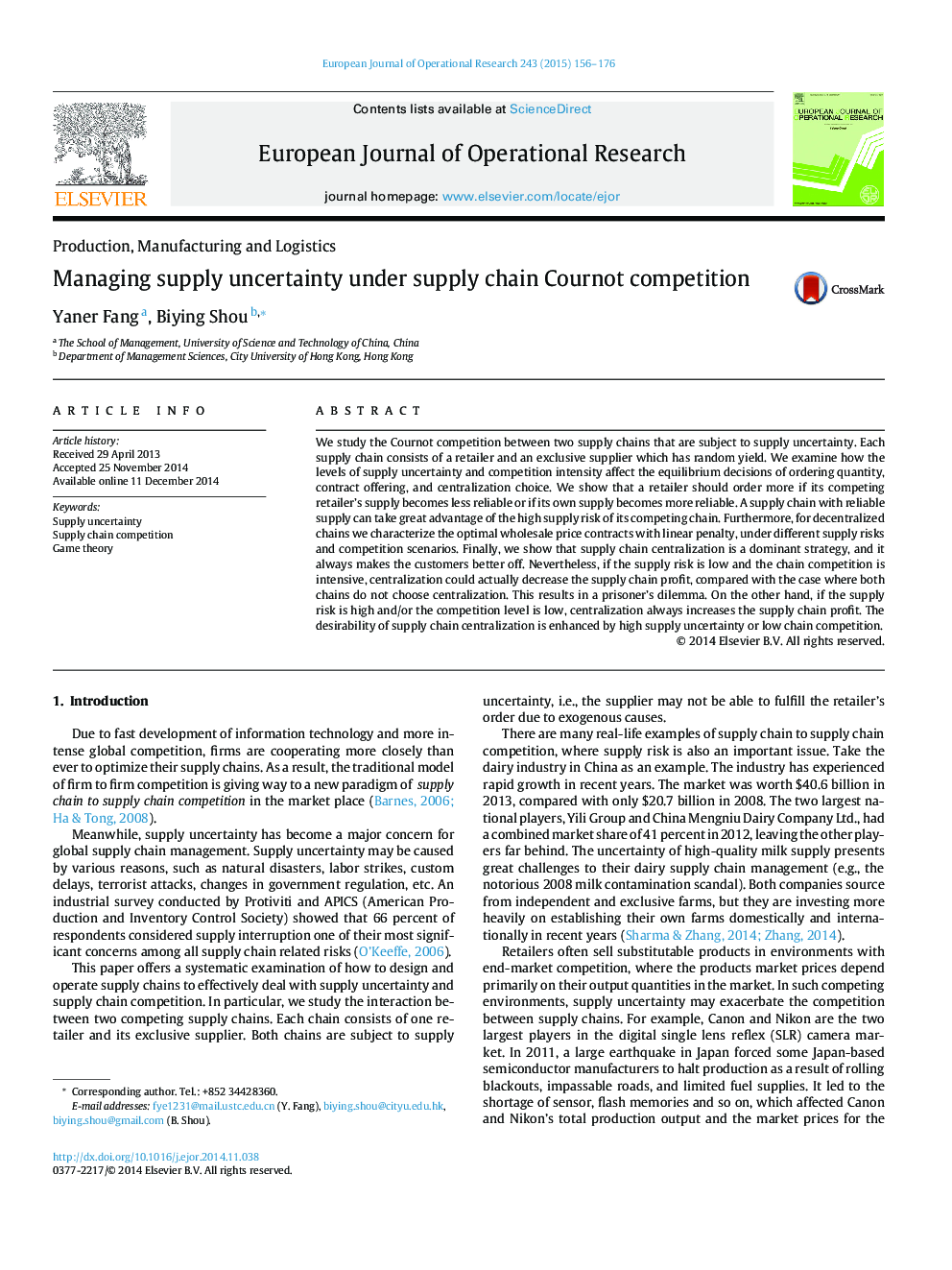| Article ID | Journal | Published Year | Pages | File Type |
|---|---|---|---|---|
| 479636 | European Journal of Operational Research | 2015 | 21 Pages |
•We study how to manage supply uncertainty under supply chain Cournot competition.•We characterize the equilibrium ordering decisions and contract terms.•We show that supply chain centralization is a dominant strategy.•Centralization may decrease supply chain profit, resulting in prisoner’s dilemma.•Centralization is more desirable under high supply risk and low competition.
We study the Cournot competition between two supply chains that are subject to supply uncertainty. Each supply chain consists of a retailer and an exclusive supplier which has random yield. We examine how the levels of supply uncertainty and competition intensity affect the equilibrium decisions of ordering quantity, contract offering, and centralization choice. We show that a retailer should order more if its competing retailer’s supply becomes less reliable or if its own supply becomes more reliable. A supply chain with reliable supply can take great advantage of the high supply risk of its competing chain. Furthermore, for decentralized chains we characterize the optimal wholesale price contracts with linear penalty, under different supply risks and competition scenarios. Finally, we show that supply chain centralization is a dominant strategy, and it always makes the customers better off. Nevertheless, if the supply risk is low and the chain competition is intensive, centralization could actually decrease the supply chain profit, compared with the case where both chains do not choose centralization. This results in a prisoner’s dilemma. On the other hand, if the supply risk is high and/or the competition level is low, centralization always increases the supply chain profit. The desirability of supply chain centralization is enhanced by high supply uncertainty or low chain competition.
